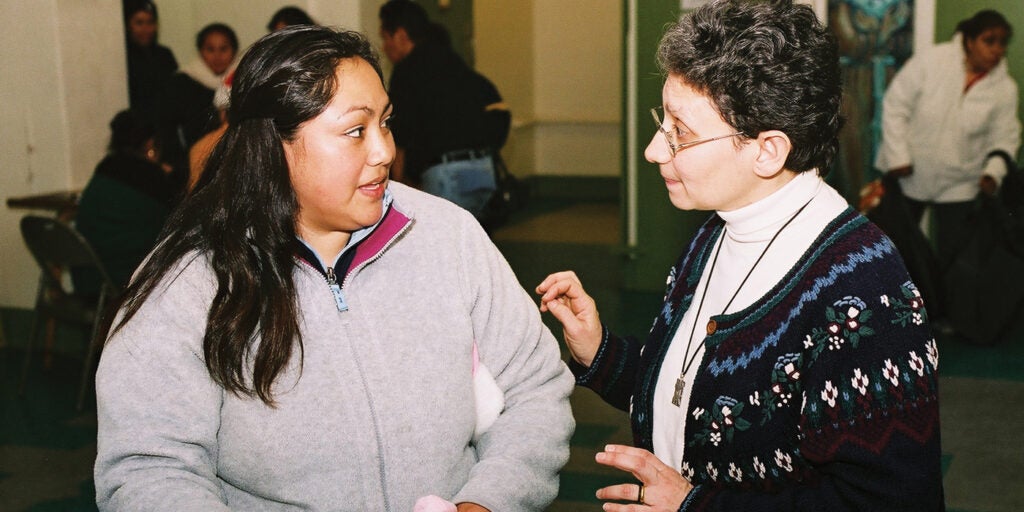

Catholic Charities of Baltimore is implementing a trauma-informed care approach throughout its agency to improve interactions not only with clients but also among staff.
The process began within the Family Services division of the agency, according to Jon Hackbarth, who until recently had worked as a mental health care administrator at Catholic Charities. “That’s where it started,” Hackbarth said, “but it really needs to be – and we have tried to expand it to – the whole agency, because everyone who comes to us should have a consistent, trauma-informed care encounter with all of our staff at all times. And also our staff with each other.”
Hackbarth noted that rolling out the trauma-informed care approach will take three to five years. “We’ve come up with action steps and training plans for our agency,” he said, “but it’s a cultural shift and will take time.”
The aim is to instill in each staff person the understanding that all people have had some kind of trauma in their lives that impacts personal behavior today. The trauma may be the traditional kind, like being injured or being in a car accident. But any adverse experience can be a traumatizing event, such as the separation or divorce of parents, witnessing violence, the presence of a mental health disorder, or abuse and neglect. Being aware of the possibility of trauma changes the way one encounters another person.
For example, Hackbarth said that when a child in one of Catholic Charities’ residential treatment centers becomes aggressive or refuses to do an assignment, the staff have been trained to recognize the behavior as adaptive. The approach they take is not “What’s wrong with you, child?” but “What happened to you that causes this behavior?” The latter approach allows for a space where the child – or any client – experiences care as a fellow human being and participates in maintaining his or her own wellbeing.
When it comes to staff, a trauma-informed care approach would include recognition of both personal trauma and work-related trauma. Supervisors adopt a supportive view of staff that involves regular check-ins and consideration of staff opinions concerning the work environment and policy decisions. “It’s not that we don’t hold staff accountable to do the jobs they’re doing,” Hackbarth added, “but neither do we assume immediately that the staff person is bad or they don’t have any commitment or dedication. It’s recognizing that we all have things going on in our personal lives that can affect us. And that’s part of the trauma-informed care approach.”
Catholic Charities staff also can have work-related trauma when interacting closely with clients who are experiencing trauma in their lives. Hackbarth called it “vicarious trauma.” “Our staff will feel the stresses and feel the pain that our clients feel to the point that they get burned out or worse. If the staff person comes from a home where the father was abusive and they’re working with kids who have abusive parents, then that can be re-traumatizing.” Supervisors are trained to acknowledge and help staff with incidents of vicarious trauma.
The objective for everyone, staff and clients alike, is good mental health, which is not always easy to assess. Trauma-informed care looks at indicators of mental health and the reduction of the symptomatology. “If someone feels suicidal,” Hackbarth said, “but we give them medication and through therapy they no longer have suicidal ideation, then that’s a reduction of symptoms. They are going to work or school. When you’re trying to make someone’s mental health better, it’s a reduction of symptoms that indicates that it is working.”
Hackbarth recommended that more agencies adopt a trauma-informed care approach for their staff and clients. “I would say they need a nationally recognized trainer, somebody who can lay out the principles and be inspirational. Then the agency can take that message and actualize the next steps for its organization. If you haven’t started thinking about it yet, you’re really kind of behind.”
This story appeared originally in the fall 2018 issue of Charities USA magazine.








